
We will ask you about music colleges, music colleges, music classroom course programs, summer classes, local life information, etc. that only those who have experienced studying abroad in music can understand.Please use it as a reference for yourself in the future.
Yuko OTA
Profile of Yuko Ota
Started vocal music in the second year of high school. Graduated from Musashino Academia Musicae in March 2.Naples International Music Master ClassParticipate in
— First, please tell us a brief biography.
Ota I graduated from the vocal music department of Musashino Academia Musicae in March of this year.I started singing in the winter of my second year of high school, later than the people around me.I've been learning the piano for a long time, and I've been playing percussion in the brass band club in middle and high school, but it's been about 3 years since I started vocal music in earnest.
— What made you start singing?
Ota The first reason was that I wanted to go to Italy.I had a strong desire to study Italian, but I didn't want to go to college for a language, so after consulting with my parents, I was able to study Italian once I started singing. I really liked it, so I thought it would be best if I could learn Italian while playing music.The fact that my mother graduated from the piano department of the same university may also have an effect.My motivation is a bit impure, but ... (laughs).
— Hmm.It's interesting.
Ota Yes.But once I started, the song was really fun.I had a lot of fun during my four years at university.
— Then, did you have a strong desire to go abroad?
Ota That's right.I've always admired Italy since I was in high school.I used to go on a trip, but sightseeing and studying abroad are different, so I've always wanted to go to study after graduating from university.
— Have you ever attended such a class?
Ota No, this is my first time.I had never studied abroad.
— Have you ever been to somewhere in Italy?
Ota: My parents used to live in Rome for two years because of work, and I have many acquaintances in Rome, so I've been there several times.Also, Florence, Venice and Milan.I have also been to Naples.This wasn't the first time I visited Naples, but when I visited last time, I was sick and couldn't go sightseeing slowly, so this is the first time I've seen it properly.
— There were several classes in Italy this time, but why did you choose Naples?
Ota: It was my first time studying abroad, so I was watching some classes, but there were many auditions ...In the case of auditions, if you do not pass, you will only be listening, and of course that will be a study, but it is the first time, and if you go to Italy, you can not only listen but also actually take lessons. I thought it was good, so I chose a Naples class that I could accept without an audition.After that, I was interested in knowing that Menicucci sensei, who was the instructor, will come to Japan for a recital in October of this year.
— Did you know sensei as a performer?
Ota That's right.I felt like I knew only the name.Bocelli, a pop singer, was interested in sensei, who was studying classical music.
— How was the actual sensei?
Ota He was a very friendly person and I enjoyed it.He spoke so that I could understand it properly even if I didn't understand Italian very much.That's why I'm coming to Japan next time, so on the contrary, I teach simple Japanese ... (laughs).
— You've become very close.
Ota It was a really frank sensei.I was very grateful.
— How many people are you?
Ota I was 54 years old when I was just celebrating my birthday during the course.We were buying a bouquet and we all celebrated.
— What was the content of the lesson?
Ota It was a public lesson that you could listen to, but most of it was vocalization.The time to sing a song is about the last 15 minutes, and the rest is vocalized.There are days when I didn't sing a song at all.I realized how important Vocalitzo (vocalization) is.
Editor's Note) In Italy, vocalization is especially important, and "always speak with the professor" may spend most of the lesson time on vocalization.
— Did you have a vocalization method that you have never learned before?
Ota When I first sang, I was told, "Nothing is wrong with what you have studied, but your voice is not the one you sing at Teatro (theatre)."I was told that this vocalization sounds good, but it's not good for thousands of people to sing.So, the lesson started by changing the voice.
— Did you make the goal of this course to change your voice?
Ota My voice was a voice that sang in a narrow space, so my goal this time was to make it a voice that can be sung in a wide space.Trying to make the voice of a so-called opera singer, a voice for Teatro.
— How long was the lesson time?
Ota Basically, the schedule was set in one hour, but sometimes it took more than one hour at about.There were 1 lessons in total.
— It was planned to be at least 3 times, but you got a lot.
Ota That's right.The schedule for the next day was posted on the wall, so I looked at my name and confirmed the time.
— How many students were there?
Ota There are 11 people in total.There was another Japanese person with me.He lives in Milan and was originally studied under Menicucci sensei, and he seems to be doing his own performance activities.Also, there was only one Romanian girl, and the others were Italian.Since I was staying at the same place as my Romanian child, I became friends with him.
— There are many cases where people from various countries participate in the seminar, but if there are so many people around Italy, you can feel that you have been to Italy.
Ota That's right.I feel like I've been completely immersed in Italy (laughs).
— What impressed you with what you learned in the lesson?
Ota I learned a lot about how to use the muscles in the waist. The sensei assistant told me to hold down the muscles there all the time while I was speaking, and to speak with the feeling of pushing it back.It was so strong that I could get my fingers on my back (laughs), but thanks to that, I can now feel that my position has changed.Even when I practice after returning to Japan, I try to hold it down myself.
— Has your voice quality changed?
Ota: I was invited to a concert on the last day, but sensei told me that my voice would have changed, and I was able to feel the change myself.When I was practicing at home after returning to Japan, my family told me that my voice had changed a little.I was happy that I was able to grow.
— Has anything else changed?
Ota: I was told a lot about pronunciation.The assistant checked the pronunciation of the song I took in a separate room at times other than the lesson. I've been singing casually until now, but when I asked the natives to see it, I felt that it was different. See you.
— If you look at it that way, your consciousness will change.
Ota That's right.I was keenly aware of how important pronunciation is.The sensei I was at university specializes in French, and when I was in my fourth year at university, I was away from Italy for a year.In this course as well, it was said that "your" u "is the" u "of Franchese."I think it was a good study for me to fix it from the ground up.It was only 4 lessons, but the gain was great.
— You didn't have an interpreter, right?
Ota Yes.Neither I nor sensei used English in particular, and all exchanged in Italian.When I didn't understand, he talked with gestures, so I didn't have any trouble.
— Are there any words that were useful to remember?
Ota: I remembered all the necessary words for vocal music, but I was told many times during the lesson, so I felt like I learned it naturally.The tongue is lingua, inhaling is inspirazione, exhaling is espirazione, appoggio. This means "support".Then the muscles are called muscolo, which was really said many times.Also, Italians exchange "In bocca al lupo!" And "Crepi!" When sending out people to participate in auditions and competitions.This literally means "Watch out for the wolf's mouth!" And "Kutabare!", But it is used to mean "do your best" and "thank you" in so-called Japan.At the concerto on the final day, everyone was talking in the waiting room.
— Did you practice at the lesson venue?
Ota I didn't practice because I had lessons every day and there was no practice room such as a so-called practice room in the building of the venue.However, I practiced how to breathe and how to use muscles every day after returning to the hotel.On the first day, I learned how to put my legs and head on the wall, stand with my back straight, and take a breath, so I did it every day after returning to the hotel.I also did muscle training and stretching such as abdominal muscles.I couldn't make a loud voice because it was a hotel, but I also practiced singing by humming.
— What were you doing outside of the lessons?
Ota: I was free to listen to other people's lessons, so I listened to them and went back to the hotel to spend a relaxing time.
— How was the other person's lesson?
Listening to Ota people's lessons is also a great learning experience.I took a notebook and wrote down that the person taking the lesson was careful, but that was a great learning experience.
— How was the concert on the last day?
Ota All the people who took the course were sent out.The place was the famous Archaeological Museum nearby, and we moved by ourselves.I thought that it was an internal presentation held only by those who participated in the seminar, but I did it when general customers came to see it.
— Did you have a lot of customers?
Ota I don't know exactly, but I think there were more than 100 people.The people who came to the Archaeological Museum came to see me with the feeling, "Oh, don't do anything," so there were many people from the elderly to small children.
— Did you feel like using the piano in the museum lobby?
Ota No, the piano was placed in a small room just off the entrance, not in the lobby, and it was held there.It seems that presentations are often held in that room.
— It's a city with a lot of music.
Ota That's right.Not only in Naples, but in Italy, such small concerts seem to be commonplace regardless of level, and I felt the difference from Japan.
— What else did you feel about the difference from Japan?
Ota: The city is older than anything else.There are old streets in Japan, but the roads are well maintained.But the city of Naples really remains as it was.The stone pavement of a thousand and hundreds of years ago remains as it is, and I was deeply moved to think that the famous people of the past also walked here.As a musician, Bellini is also famous when it comes to Naples.I also went to the nearby Bellini Square.
- how was it?
Ota It's not such a big square, but there was a statue of Bellini, and there was an Italian restaurant called Ristorante Bellini nearby.I entered there once.
— How was the taste?
I ate Ota seafood salad and pasta and it was very delicious.I heard that the dessert Dolce is famous, so I ate it too.The sea and shellfish were delicious because Naples is near the sea.
— How was the people in the city?
Ota Everyone was kind.If you don't know the way and ask, he will take you ...Since there are few Japanese people, it seems to stand out when I walk, so I talked to the souvenir shop and made friends with the uncle of the shop.
— It's friendly.
Ota That's right.Before I went, I was wary of hearing that there were many scratches and snatches, but I couldn't be targeted unless I showed a chance, and I didn't encounter any particularly dangerous eyes.
— Then, is Naples recommended in Italy?
Ota Hmm.There are so many cars and motorcycles in Naples, traffic manners are bad, and crossing the road is a life-threatening thing (laughs).People living in Milan said that Naples has worse traffic etiquette than Milan.When I come to Naples, I have to learn how to cross the road before I can learn to sing (laughs).Therefore, I think that it is good for individuals to go as long as they protect themselves, but the roads are narrow and buses etc. can not enter in narrow alleys, so it is not suitable for groups such as tours. I felt that.I think it is especially dangerous for the elderly.No matter how kind the people around me, I'm tired because I have to be vigilant and careful at all times.I like old towns, so I like Naples very much, but considering various things, I wonder if I can recommend it to everyone.
— How was your hotel?
Ota There were minor problems such as the lock not opening and the air conditioner breaking, but the hotel manager was very kind, so it was easy to spend.The day I arrived was just Sunday and the entrance was closed so I didn't know, but when I called, the manager immediately greeted me and was saved.
— Sara Chopin, the venue for the lesson, is also a difficult place to understand.
Ota Well, at first I thought that the building name was Sara Chopin, but I was told that no one would know it near the square where the venue is (laughs), so I didn't write the address on the building, so a little It was difficult to understand, but I was able to reach it safely because I had you explain it once before going over there.
— What was the move?
Ota is on foot.The hotel and the lesson venue were so close that it took less than 15 minutes on foot. I took the bus only once, but it was more reliable to walk due to heavy traffic, so I walked.
— How much was the bus?
Ota The system is difficult to understand, but when you buy a card and get on the bus, the time is stamped.Therefore, the valid time differs depending on the amount of the card.I bought one for 1 euro, so it was valid for 75 minutes.Some of them can be used for a longer time, some can be used for one day, and some can be used for three days.
— It's a little cheaper than Japan.
Ota That's right.Overall, I felt that transportation costs were cheaper than in Japan.The taxi also depends on the land and time, but the first ride was 2-3 euros.
— You went to Naples this time after sightseeing in Rome, right?
Ota Yes.In Rome, I went to a conservatory in the suburbs for two weeks and took private lessons, but both of them were learning.I was taught by sensei, who is a professor at the Santa Cecilia Conservatory.
— What was the difference?
Ota I was taught various vocalizations in Rome, but in Naples I was conscious of Teatro, so there was a big difference in that area.
— How about the difference in lesson format?
Ota The lesson in Japan was also a private lesson, so it was the first time for the public lesson itself, but the public is open and it will be a learning experience because people who are also studying songs will listen to their songs. It was a great learning experience for me to be in a position to listen.I've only been doing private lessons for a long time, but I can get used to singing in public and I like the public lessons.
— Did you have a good chance to talk to other students?
Ota I made the best friendship with a Romanian child, who was originally studying vocal music in Milan.While listening to the lecture together, we talked about our impressions on the spot and went out to eat dinner together.
— Do you have any tips for getting along well with foreigners?
Ota: I think there are times when language problems come up and atrophy, but I felt it was important to talk positively from here.Also, those people don't like being ambiguous, so I think it's important to properly convey your intentions that you can't understand unless you understand.
— What is the difference between Japan and Italy?
Ota I felt that everything was fundamentally different.From a Japanese perspective, I think that everything over there is free and at my own pace.For example, it's inconvenient, but the shops are closed during the day and on Sundays.I knew that, so I was fine, but I think people who come to sightseeing without knowing it will be surprised.The amount of cars will change according to the business hours of the store.Almost no cars were running except buses and taxis on Sunday (laughs)
— Did you go shopping at a supermarket?
There was a famous supermarket near Ota station that sells daily necessities, and I went there only once.
— How was the price?
Ota The euro is high right now, so it's not cheap at all.Moreover, I can't drink tap water, so I had to buy water, and I think that was a considerable expense.
— How much was the water?
I bought it at McDonald's or Bar near Ota, but it was about 500 euro for 1 ml.When I went, 1 euro was about 170 yen, so it's still a little higher than in Japan.
— Lastly, please give some advice to those who study abroad.
Ota: It's not advice for those who study abroad, but if anyone is worried about studying abroad, I definitely recommend going.After all, learning at the home of music means that you can experience a completely different feeling from Japan just by breathing in the air there.Fortunately, I feel that I was able to get a big deal by taking such an opportunity this time.
- So that's it.
Ota: It's a little confusing, but no matter how much I learned classical music in Japan, I felt that Western music played in Japan was an imitation of Western music.Of course, all of the sensei who I studied in Japan were wonderful sensei who had studied abroad, so it is not true that studying in Japan was useless.I think I was able to study abroad because I had four years at university.However, for example, classical music is music over there, so that no matter how much you study enka over there, you will not know the actual situation unless you come to Japan, so you have to go over there to study the real thing. I felt it.
- So that's it.
If you're a person who leaves Ota College of Music and finds a job elsewhere and does music as a hobby, that's fine, but if you want to do music in earnest for the rest of your life, then over there. I think you will need the experience of going.
— Ota, how would you like to be involved in music in the future?
Ota If possible, I would like to go to Italy again around winter to study.I don't want to eat with music.I don't think it's that easy to eat as a performer.However, I studied at Tokyo College of Music for four years, and this time I was able to reconfirm that I like singing, so I would like to continue studying music for the rest of my life.I would like to meet a sensei that suits me and develops me, and study under that sensei.This time, I went to Italy, which I had longed for, and that feeling became stronger.Even if I can't open a big recital, I wish I could sing for people because it's okay in a small place.I want to be able to sing such songs that people who listen to them will be impressed, but they will feel something even a little.
— This study abroad has strengthened your feelings for music.
Ota: I don't have a TV or a computer, so I only think about music, so it was a good opportunity to look back at myself.For a short period
Although I was studying abroad, I was able to reaffirm that I like singing.By studying abroad this time, I learned that I am not yet at the stage where I can sing songs.I was keenly aware that it was necessary to speak and build my body, and first of all, I wanted to get the basics right.
- Thank you very much today.



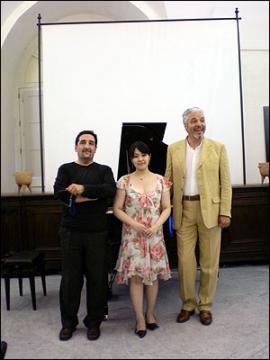
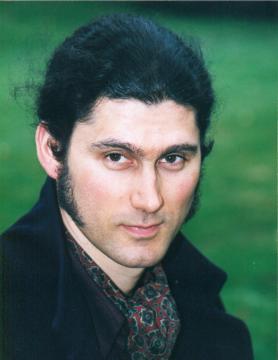

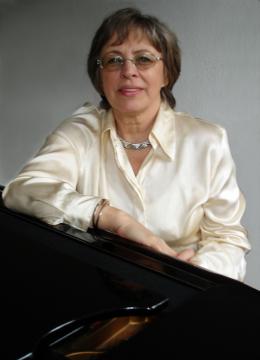
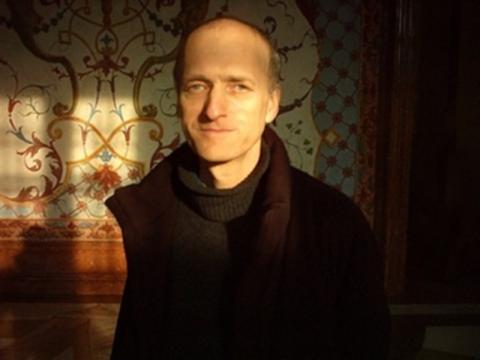
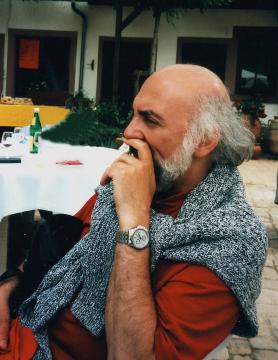


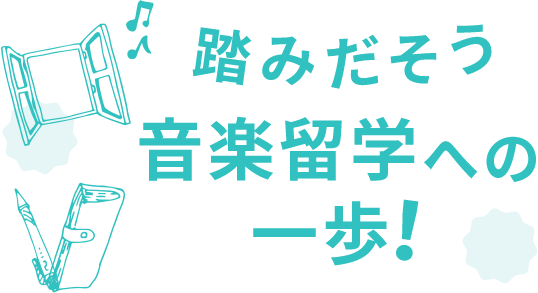
 Book a Counseling
Book a Counseling